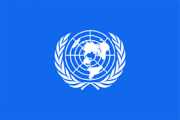Mr. Chairman,
Excellencies,
Distinguished delegates,
I have the honour to deliver this statement on behalf of the 14 Member States of the Caribbean Community (CARICOM). CARICOM aligns itself with the statement made by the representative of Algeria on behalf of the Group of 77 and China; and we congratulate and welcome you and the other members of the Bureau, as we begin the work of this commission. We have every confidence in your experience and skill and we offer our full support throughout this session.
CARICOM Member States are of the firm belief that what is most invaluable in a society is in essence the opportunity for development given to the individual. It is that individual that we should never lose focus of, it is that individual who knows that - as the World Development Report (2001) notes - “to be poor is to be hungry, to lack shelter and clothing, to be sick and not cared for, to be illiterate and not schooled.” For half a century we have come together to discuss and debate social policy issues and the social perspective of development, we have worked to overcome great challenges and though much progress has been made, much more remains to be achieved.
“Poverty eradication remains the overarching objective of national and international development efforts since the 1995 World Summit for Social Development.” These are the words that open the Report of the Secretary General on Poverty Eradication (E/CN.5/2012/3) and this is the theme that will guide the work of this session.
Mr. Chairman,
The Caribbean Community has identified poverty eradication as a fundamental development imperative and is fully committed to the challenge of combating this scourge. However, it is well known that CARICOM member states like many other UN member states are not fighting this battle from the proverbial high ground. Our states are characterized by our small size, our dispersed populations and economies, our remoteness from international markets, high costs of transport and limited diversification in production and exports.
As a result of these characteristics our countries are extremely vulnerable to external economic shocks and highly susceptible to natural disasters, which pose a major challenge to growth and resilience. Our communities are particularly troubled with the further constraints on our fight against poverty arises from the new global environment of multiple crises – the world financial and economic crisis, the food and energy crises and the numerous challenges posed by climate change.
CARICOM continues to express grave concern over the vicious cycle whereby non-communicable diseases and their risk factors worsen poverty, while poverty contributes to rising rates of non-communicable diseases, posing a threat to public health and economic social development.
Mr. Chairman,
The attainment of the Millennium Development Goals is an active work in progress in the region. Several of our member states have integrated the MDGs into their national planning frameworks, while others are still in the process of doing so, having completed national MDG reviews. Progress has been varied to the extent some goals have already been achieved or will be achieved by 2015.
CARICOM member states have designed and implemented domestic and regional policies aimed at eradicating poverty; however against the backdrop of the numerous challenges, these efforts are not sufficient to adequately manage the problem of poverty. Our member states recognize that the hope of the fulfillment of comprehensive poverty eradication rests in our global collective commitment.
An important issue that we will continue to stress is the situation of developing countries that have been graduated to Middle Income Status. It is our view that there is a case to be made for re-thinking the treatment of countries like ours given the challenges, constraints such as poverty, high indebtedness, and other socio-economic problems that we continue to face. Middle income classification restricts access to concessionary financing resulting for example in the cutting off of funding from the Global Fund for AIDS, which is critical to a holistic approach to poverty eradication..
Mr. Chairman,
Notwithstanding the seemingly insurmountable challenges that threaten our commitment to the cause of poverty eradication, CARICOM has never and will never lose focus on the purpose of our mission. We will continue to work assiduously within this commission and other United Nations frameworks and organizations, with a view to overcoming our challenges and producing effective results.
CARICOM takes this opportunity to emphasize its hope that we do not get lost in the rhetoric and that we remember those we are here to serve, that we all stay focused throughout this session on the poor, on those individuals who deserve better, those individuals who depend on us to find and negotiate effective solutions. Let us never forget.
Thank you.


